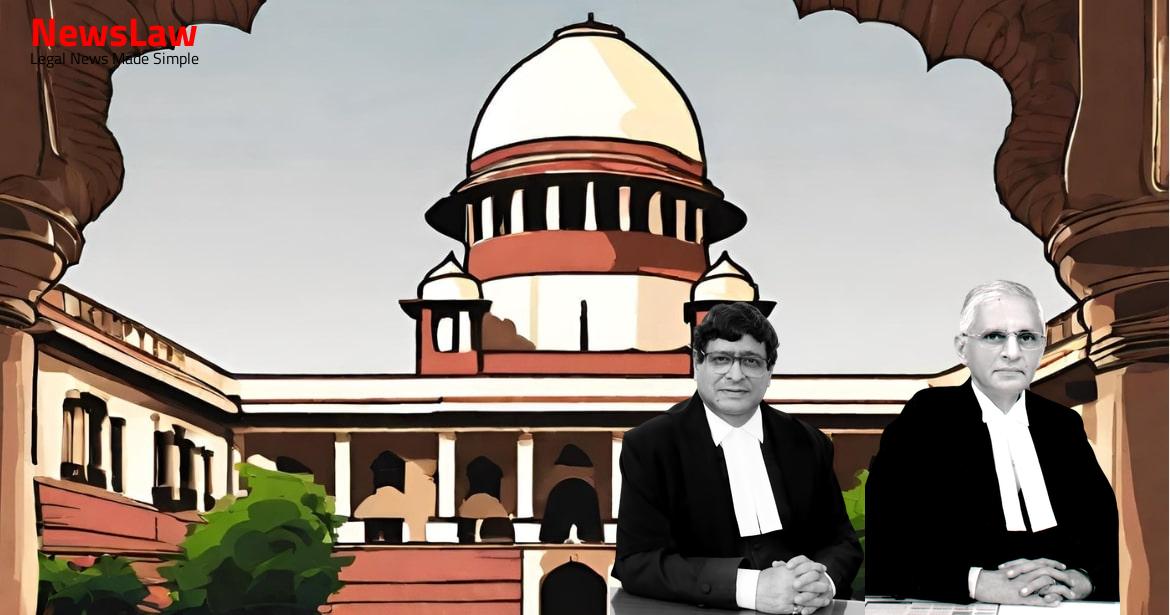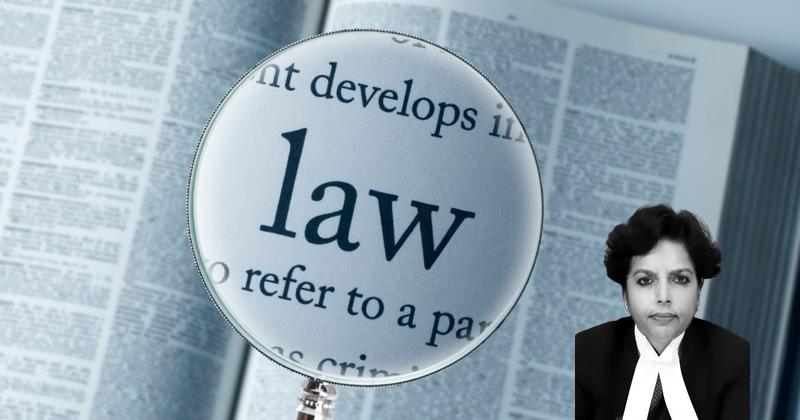Delve into the intricacies of legal proceedings as we dissect the case of Raj Reddy Kallem versus The State of Haryana & Anr. This captivating case study unveils the saga of a failed business transaction that spiraled into a complex legal battle. Explore the appellant’s journey, Raj Reddy Kallem, and the respondent’s stance, as they navigate through convictions under the Negotiable Instruments Act (NI Act) and charges under the Indian Penal Code (IPC). Witness the twists and turns of justice as the Supreme Court intervenes, culminating in a landmark decision that reshapes the legal landscape.
Facts
- Respondent No.2 placed a purchase order for a machine from the company of the Appellant in 2012.
- An advance amount of Rs.1,55,00,000 was paid by Respondent No.2 to the company of the Appellant for the machine.
- Appellant issued 5 cheques to the complainant for the return of the advance money.
- Appellant presented a Demand Draft of Rs.20 lacs towards the remaining amount owed to the complainant on 12.02.2020.
- Various court proceedings were initiated by the Appellant seeking an extension of time to repay the amount, during 2016-2020.
- A settlement order dated 05.12.2015 mentioned that once the entire amount was paid, the proceedings under Section 138 of NI Act and offences under Section 406, 420 read with 120B of IPC had to be compounded.
- Appellant’s wife failed to comply with a court order to deposit Rs.20 lacs, leading to dismissal of the SLP in 2020.
- The trial court refused to accept the Demand Draft from the Appellant in 2021, stating the application was not maintainable.
- Respondent No.2 filed an affidavit in 2024 stating that no settlement had been reached between the parties as alleged by the Appellant.
- A settlement dated 05.12.2015 was mentioned to stand frustrated by an order of the Additional Sessions Judge in 2016.
- Appellant has returned the entire due amount and paid Rs.10 lacs more towards interest for delayed payment.
- This Court granted time for both sides to draw a settlement when informed that the entire amount had been paid in 2024.
- The trial court noted compliance with the interim order of this Court in 2023.
- Charge sheet under Sections 406, 420 r/w 120B of IPC was filed against the Appellant in 2014 and trial commenced.
- After negotiations in Lok Adalat, a settlement was reached by the parties in the appeal filed by the Appellant before the Additional Sessions Judge.
- Appellant submitted two cheques of Rs.10 lakhs each as per the Court’s order.
- Trial court confirmed compliance and forwarded a report to the Court.
- On the next hearing, Court directed appellant to deposit additional Rs.10 lakhs as interest for delayed payment.
- Appellant challenged a previous court order in High Court, which was dismissed due to failure to deposit remaining Rs. 20 lakhs within stipulated time.
- Original case involved conviction under Section 138 of NI Act and sentencing to 2 years RI along with cheque amount repayment.
- An additional settlement order was passed for repayment of entire amount within 16 months.
Also Read: Chandan v. State of Delhi: Eyewitness Testimony and Circumstantial Evidence
Arguments
- Appellant has paid back the entire amount of Rs.1.55 crore
- Appellant has paid a further sum of Rs.10 lacs towards the interest
- No grounds left for continuing criminal proceedings against the appellant
Also Read: State of Maharashtra v. National Organic Chemical India Ltd.
Analysis
- The court distinguishes between quashing a case and compounding of offences.
- The NI Act does not provide detailed guidelines on how offences should be compounded.
- The settlement between the appellant and the complainant had a clause stating that non-payment as per stipulated timelines would frustrate the settlement.
- The appellant eventually paid the complainant after approaching higher courts and complying with court orders.
- The complainant, despite being compensated, does not agree to the compounding of the offence.
- Mere repayment of the amount does not absolve the appellant from criminal liabilities under Section 138 of the NI Act.
- Continuing the criminal appeals would defeat the efforts of the court to ensure the complainant receives her money back.
- Compensatory aspect of the remedy should be given priority over the punitive aspect in cases of dishonour of cheques.
- Accused should try for compounding at the initial stages of proceedings, but can seek compounding even after conviction.
- Offences under the Negotiable Instruments Act are compoundable under Section 147.
- The impact of dishonour of a cheque is limited to the private parties involved in commercial transactions.
- A disproportionately large number of cheque dishonour cases are burdening the criminal justice system.
- Consent of the person compounding is essential for compounding offences under Section 138 of the NI Act.
- The requirement of ‘consent’ in compounding under the NI Act cannot be disregarded.
- The court can close criminal proceedings under Section 138 even without consent if the accused has compensated the complainant.
- The legislative intent behind making dishonour of cheques a crime was discussed by the Court.
- Transaction between parties purely civil in nature.
- Complainant unwilling to compound the case.
- After reviewing facts and circumstances, proceedings should end.
- Appellant failed to supply machine after taking advance money, but no evidence of ill intention to cheat.
Also Read: Justice Served: Analyzing the Landmark Case of Dattatraya v. State of Maharashtra
Decision
- All pending criminal appeals filed by the present appellant against his conviction under Section 138 of the NI Act are deemed to be quashed.
- Exercise of powers under Article 142 of the Constitution of India to quash the pending criminal appeals on the file of Additional Sessions Judge, Ambala Cantt.
- Conviction and sentence awarded to the appellant by the trial court are set aside.
- The trial court is directed to hand over the Demand Drafts totaling the amount of Rs.30 lacs to the complainant, as per this Court’s orders.
- Disposed of any pending application(s).
- Quashing of all criminal proceedings concerning the appellant arising from FIR No.35 of 2014 at P.S Mahesh Nagar, Ambala pending before Chief Judicial Magistrate, Ambala.
- Allowance of the appeal and setting aside of the impugned order of the High Court dated 29.11.2022.
Case Title: RAJ REDDY KALLEM Vs. THE STATE OF HARYANA (2024 INSC 347)
Case Number: Crl.A. No.-002210-002210 / 2024



